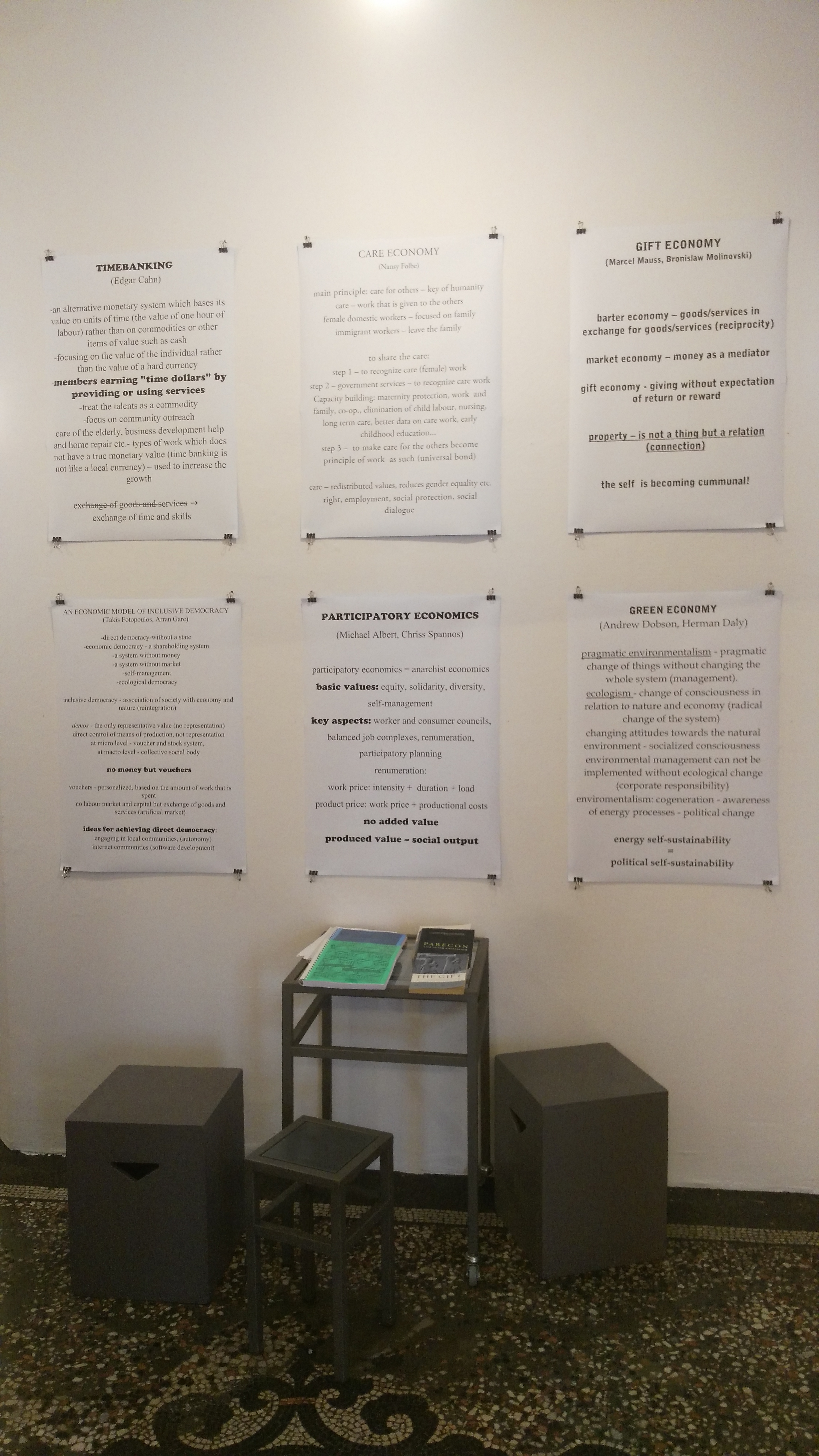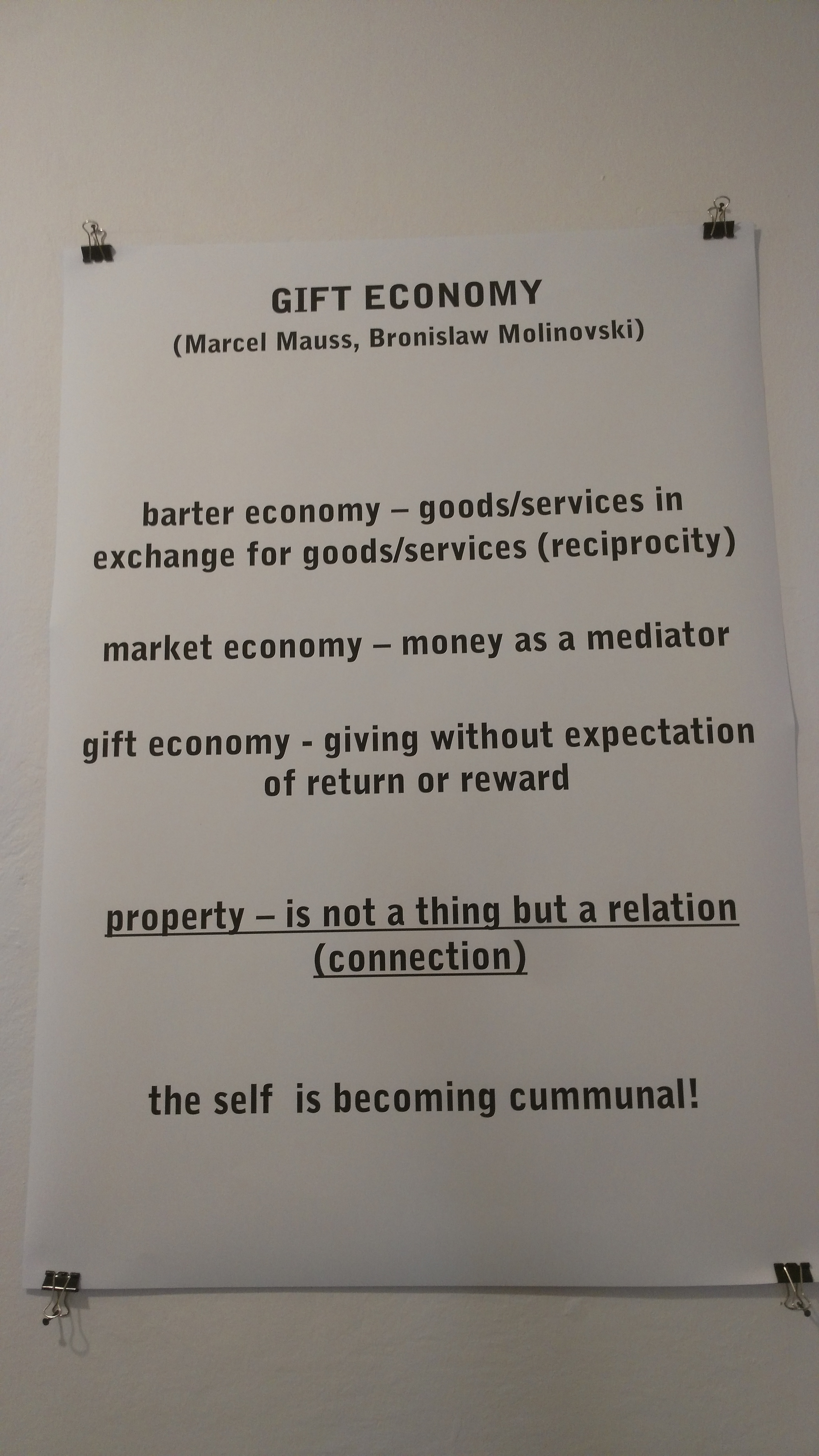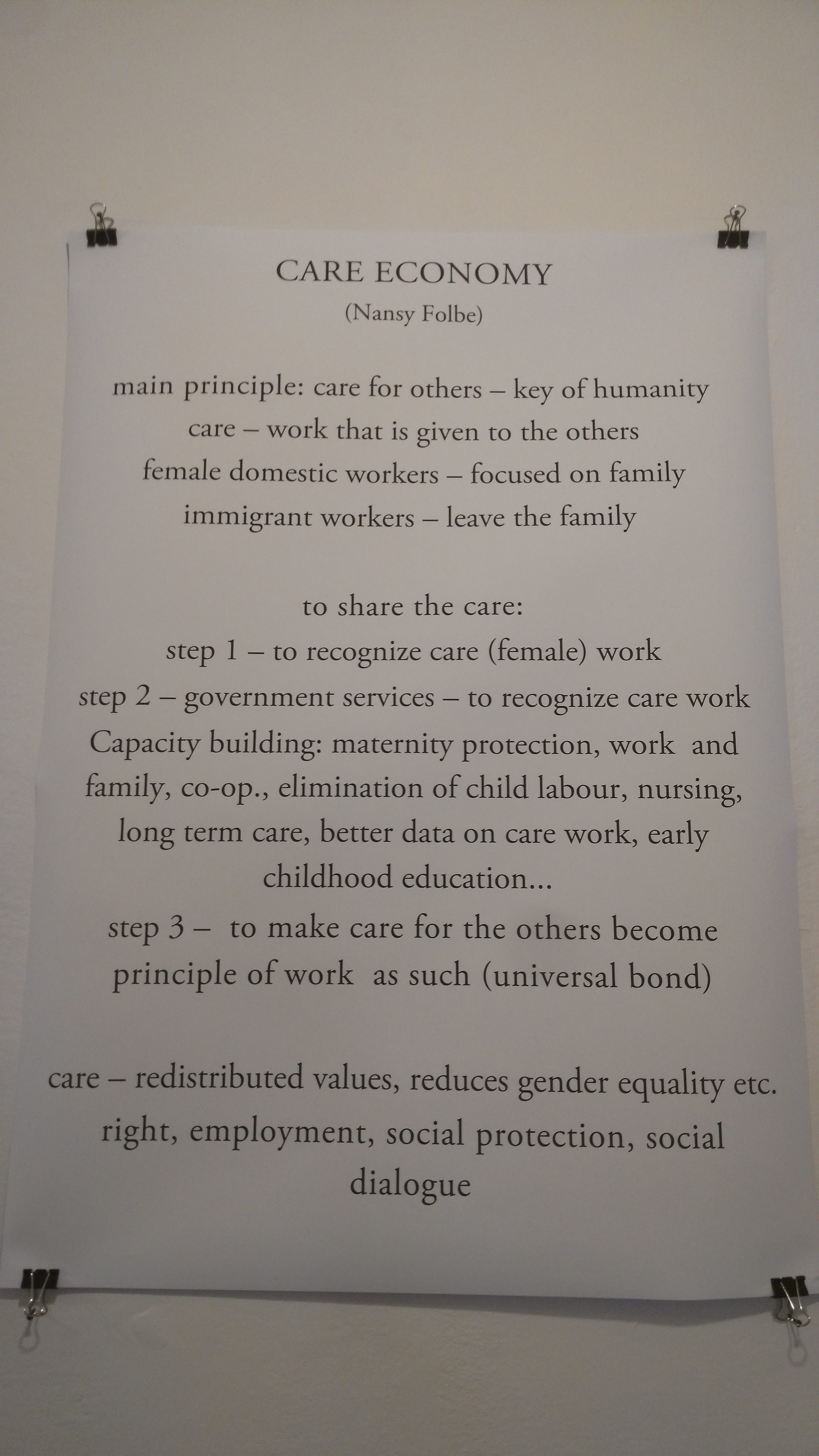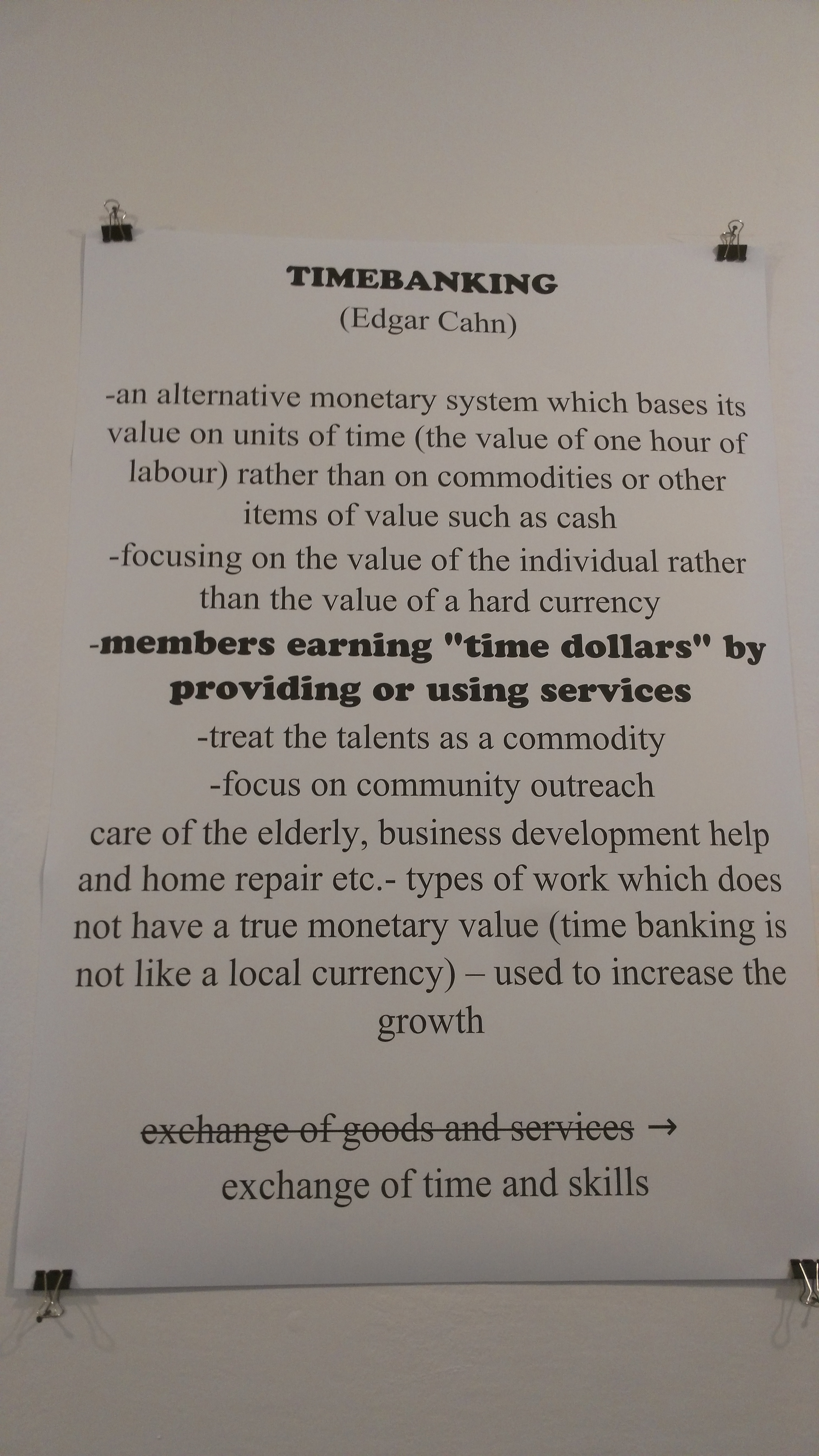installation, 2018.
The idea of the educational project “Social Economical Theories-Library” is based on a promotion of alternative economical models that go beyond the neo-liberal economic system. Field of interest is the study of economic theories that offer potential opportunities for the development and establishment of economic exchange that is not sustained by the principles of individual profit entities but is driven by the interest of the community as a whole. Alternative theories of economics that project covered for this ocasion are: 1 PARECON – Participatory Economics (Michael Albert , Chris Spannos) – a non-representational economic theory based on the idea of joint decision –making, depending on the level of influence something has on subjects, self-management model of work organization based on joint-work between producers and consumers and the equal distribution of goods; 2 Inclusive Democracy (Anthony Giddens , Jon Elster , Takis Fotopoulos , Aran Gare etc.) – form of direct democracy which implies a model of political and economic decision-making that is more open to civic participation (minimalist and maximalist democratic participation); 3 Gift Theory (Marcel Mauss) – idea of a gift as the basis of exchange – an entity that gives something from him/herself as a subject which establishes a kind of gap in itself, but that gap then continues to circulate in the collective (unlike in capitalist societies where this kind of gap stays always with the subject)- idea of gift as a way of expanding the self to the whole community; 4 Economics of Care (Nansy Folbe) – Care Work – the role of caring for each other as a form of economic exchange (the “feminist” economy); 5 Time- banking (Edgar Cahn) – economy based on the exchange of time and skills, instead of goods and services.
PARTICIPATORY ECONOMICS
(Michael Albert, Chriss Spannos)
participatory economics = anarchist economics
basic values: equity, solidarity, diversity, self-menagement
key aspects: worker and consumer councils, balansed job complexes, renumeration, participatory planning
renumeration:
work price: intnesity + duration + load
product price: work price + productional costs
no added value
produced value – social output
———————————————————————
GIFT ECONOMY
(Marcel Mauss, Bronislaw Molinovski)
barter economy – goods/services in exchange for goods/services (reciprocity)
market economy – money as a mediator
gift economy – giving without expectation of return or reward property – is not a thing but a relation (connection) Self to the community!
————————————————————————-
AN ECONOMIC MODEL OF INCLUSIVE DEMOCRACY
(Takis Fotopoulos, Arran Gare)
-direct democracy-without a state
-economic democracy – a shareholding system
-a system without money
-a system without market
-self-management
-ecological democracy
inclusive democracy – association of society with economy and nature (reintegration)
demos – the only representative value (no representation)
direct control of means of production, not representation
at micro level – voucher and stock system,
at macro level – collective social body
no money but vouchers
vouchers – personalized, based on the amount of work that is spent
no labor market and capital but exchange of goods and services (artificial market)
ideas for achieving direct democracy:
- engaging in local communities, (autonomy)
- internet communities (software development)
———————————————————————————-
CARE ECONOMY
(Nansy Folbe)
main principle: care for others – key of humanity
care – work that is given to the other
girl domestic workers – focused on family
immigrant worker – one who leave the family
to share the care:
step 1 – to recognize care (women) work
step 2 – goverment services – to recognize care work
Capacity building: maternity protection, work and family, co-op., elimination of child labour, nursing, long term care, better data on care work, early childhood education…
step 3 – to make care for the other become principle of work as such (universal bond)
care – redistributed values, reduces gender equality ect.
right, employment, social protection, social dialogue
—————————————————————————————
GREEN ECONOMY
(Andrew Dobson, Herman Daly)
pragmatic environmentalism – pragmatic change of things without changing the whole system (management).
ecologism – change of consciousness in relation to nature and economy (radical change of the system)
changing attitudes towards the natural environment – socialized consciousness
environmental management can not be implemented without ecological change (corporate responsibility)
enviromenatalism: cogeneration – awareness of energy processes – political change.
energy self-sustainability – political self-sustainability
—————————————————————————————————
TIMEBANKING
(Edgar Cahn)
-an alternative monetary system that bases its value on units of time (the value of one hour of labor) rather than on commodities or other items of value such as cash
-focusing on the value of the individual rather than the value of a hard currency
-members earning “time dollars” by providing or using services
-treat the talents as a commodity
-focus on community outreach
care of the elderly, business development help and home repair etc.- types of work which does not have a true monetary value (time banking is not like a local currency) – used to increase the growth
exchange of goods and services. – > exchange of time and skills
Production: rotor – Association for Contemporary Arts, Graz, Austria, 2018.




